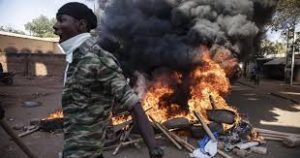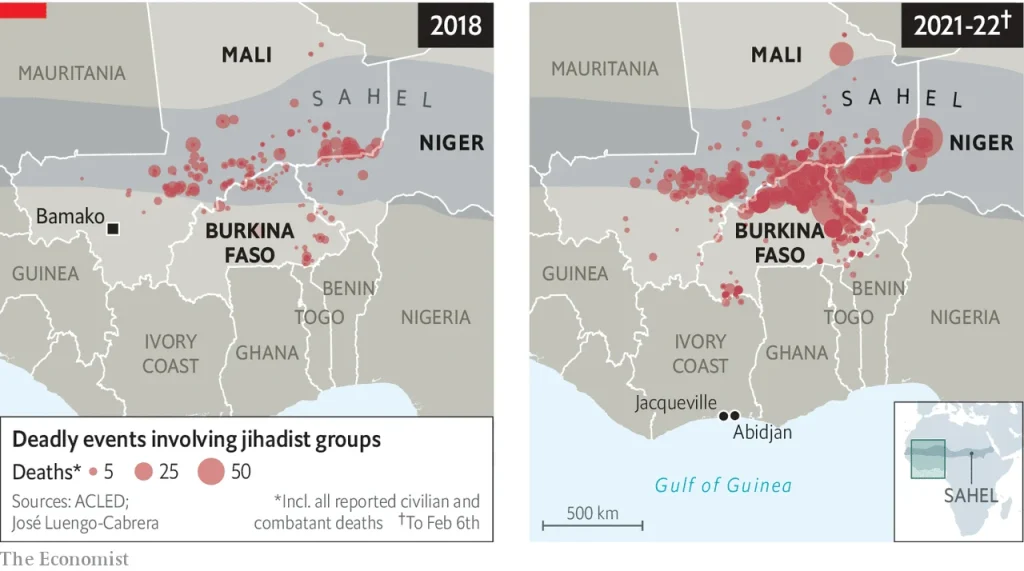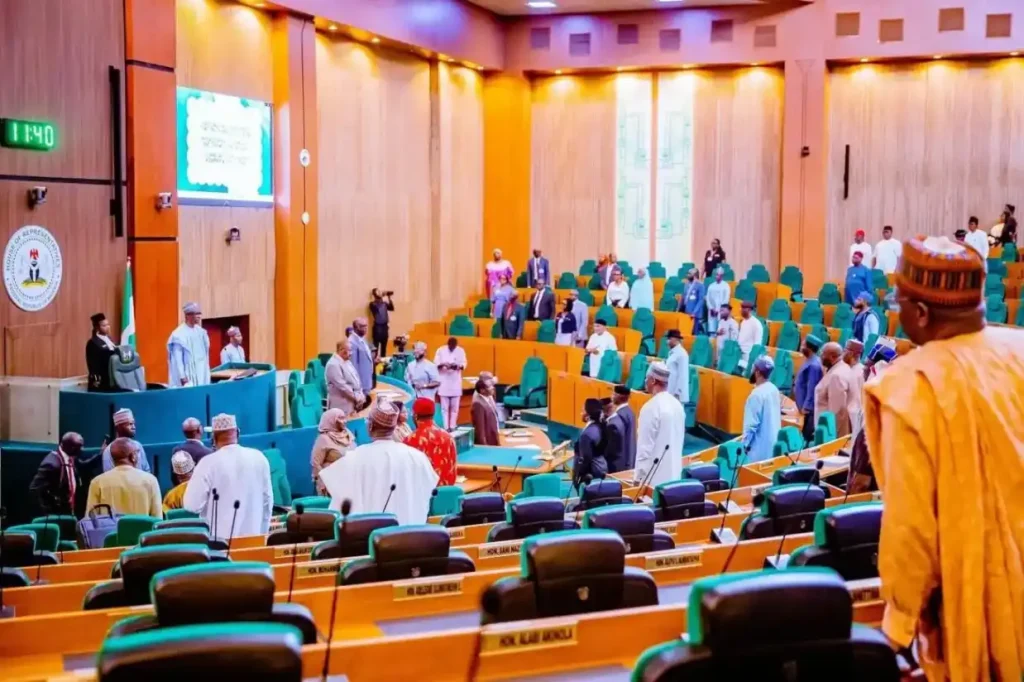 In early 2021, Burkina Faso’s security challenges intensified, with a surge in violent attacks by jihadist groups creating widespread fear and massive displacement among the population. Since 2015, the country has been grappling with an insurgency driven by groups linked to al-Qaeda and the Islamic State, and the situation showed no signs of abating.
In early 2021, Burkina Faso’s security challenges intensified, with a surge in violent attacks by jihadist groups creating widespread fear and massive displacement among the population. Since 2015, the country has been grappling with an insurgency driven by groups linked to al-Qaeda and the Islamic State, and the situation showed no signs of abating.
On January 14, 2021, a deadly ambush on a convoy of the National Gendarmerie in the northern region of Sanmatenga resulted in the deaths of at least 20 security personnel. This attack underscored the deteriorating security landscape in Burkina Faso and raised concerns about the Burkinabé military’s ability to combat the insurgency effectively. President Roch Marc Christian Kaboré condemned the violence and pledged to reinforce security forces, vowing a robust response to the growing jihadist threat.
The violence has had a severe humanitarian impact. By the end of 2020, the United Nations reported that approximately 1.5 million people were internally displaced, with that number expected to increase throughout 2021 as attacks continued to spread. Displaced populations have been living in precarious conditions, with limited access to essential services such as healthcare, food, and shelter.
In an effort to curb the insurgency, the Burkinabé government launched several military operations aimed at reclaiming control of areas affected by violence. However, these initiatives met with limited success, as armed groups frequently retaliated against security forces and civilians, perpetuating a cycle of violence. Public frustration with the government’s handling of the security crisis continued to mount, as many citizens expressed dissatisfaction with the slow progress in addressing the insurgency.
International partners, including France and the G5 Sahel joint force, have played a critical role in supporting Burkina Faso’s fight against jihadist groups. France, in particular, maintained a military presence in the region, providing assistance in training and joint operations against insurgents. Despite these efforts, questions arose about the long-term effectiveness of foreign military interventions in tackling the root causes of the conflict, such as poverty, unemployment, and ethnic tensions.
Civil society organizations in Burkina Faso have called for a more comprehensive strategy to address the security challenges facing the country. They argue that military action alone will not bring lasting peace and stress the importance of dialogue, community engagement, and socioeconomic development to create sustainable solutions for the ongoing crisis.
As the violence escalated, Burkina Faso’s security challenges in 2021 served as a stark reminder of the urgent need for strong governance and resilience-building measures to protect civilians and restore stability. Moving forward, the ability of the government to adapt its strategies and work collaboratively with both local and international stakeholders will be crucial to addressing the complexities of the insurgency and safeguarding its citizens.




















